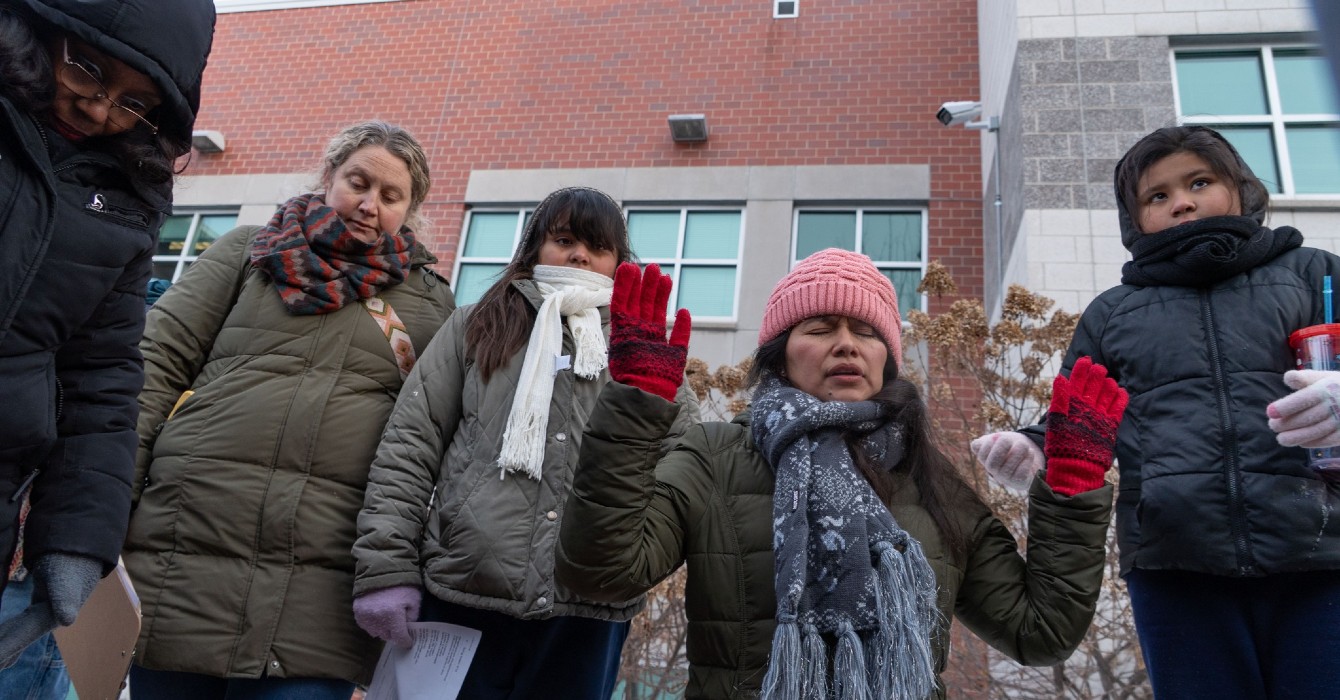Across the heartland Somali workers have baffled labor, civic and religious leaders by walking off their jobs over disputes about prayer time. As devout Muslims, the Somalis’ commitment to prayer takes precedent over job responsibilities; they do not hesitate to assert the commands of faith over the demands of workplace.
The settlement of the African Muslim diaspora in the American countryside is a foretaste of the dramatic racial and religious diversity taking root across the U.S. Few communities or congregations have the experiential or infrastructural capacity to adequately address that roiling change, especially in light of the myriad other challenges before them. It is critical that Christian communities, pastors and leaders step boldly into this river of change now to create community with African Muslim newcomers, before unfamiliarity or indifference -- or international tensions between faith communities -- breeds even more contempt and hostility.
This is not an easy step. In Emporia, KS, it took a year of persistent relationship-building between Somali elders and Christian leaders to convene a day of breakthrough conversation that brought all of them together to share stories and aspirations. In St. Cloud, MN, a fundamentalist Christian pastor ran a repugnant newspaper ad attacking Islam that jarred the Christian and Muslim advances in community-building taking place. Aimed at Somali students, this overt racial harassment and religious bigotry strained faith relationships and prompted the intervention of the U.S. Department of Education. In Greeley, CO, and in many other communities across the country, alleged imposition of “Sharia Law” -- Islamic law supposedly overriding U.S. law -- has stirred strong opposition to Muslims among some Christian groups, stoked and abetted by a powerful and well-funded anti-Muslim, anti-immigrant, anti-terrorist movement flexing its muscle nationwide.
Yet the crescent of Islam is indeed at the crossroads of Christianity in the U.S., beckoning Christian engagement with African Muslims, as well as with Muslims of other races and nations of birth. Such engagement goes far beyond the veneer of welcoming “the Other.” It goes to the heart of race, of faith, of workplace justice, of housing, health care, schools and civic life. It goes to the heart of theological foundations, pressing Christians to consider, for example, why they are baffled that Somalis would walk off the job to pray. It goes to the heart of the “conservative-liberal” religious divide over social issues. It goes to the heart of how peoples of strong faith build trusting relationships with others of differing, strong faith. It pushes us to consider just how deeply we are prepared and committed to building deep and trusting human relationships with new neighbors who share the human passion for creative, just and humane community in the new century.
Step boldly into this river of change. Brace yourself; embrace your neighbor. Build the relationships that will buoy everyone along the way. The water may be deep and swift, but it is ever so invigorating.
David Ostendorf is a United Church of Christ Minister serving as Executive Director of the Chicago-based Center for New Community, a national organization building community, justice and equality.





